Reading good books to appreciative children has to be one of the great simple pleasures of life. Andrew Carnegie knew about this. He loved literature, he loved reading and he loved children.
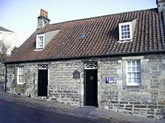
Andrew Carnegie has an interesting story; he was born into a poor Scottish family, in a weaver’s cottage in 1835. And the family emigrated to America when he was 12 years old.
He managed to invest in the right things at the right time and he became a self-made millionaire, making his fortune in the American steel industry. And when he had made his fortune he focused on philanthropy, giving away vast sums of money and in particular, setting up libraries.
The library was very important to the young Carnegie. It was so important that he resolved that ‘if ever wealth came to me that it should be used to establish free libraries.’
Andrew Carnegie went on to set up more than 2800 libraries across the English speaking world during his life, and, by the time of his death at the age of 83 in 1919, over half the library authorities in Great Britain had Carnegie libraries.
So what about the medal?
The Carnegie Medal was established by The Library Association in Britain in 1936, in memory Andrew Carnegie. The Medal is awarded annually to the writer of an outstanding book for children in Britain. The winner receives a golden medal and £500 worth of books to donate to a library of their choice.
It was first awarded to Arthur Ransome for one of his ‘Swallows and Amazons’ books, Pigeon Post.
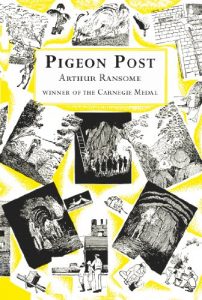
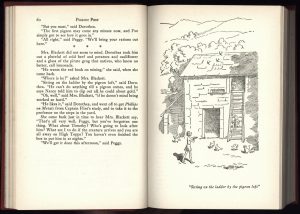
Mary Norton won the prize in 1952 for The Borrowers..
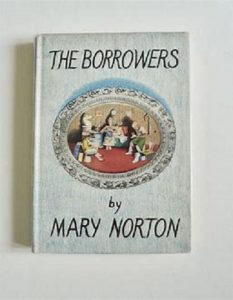
And in 1956 C S Lewis won the award for his final book in the Narnia series, The Last Battle.
My favourite winner has to be Cynthia Harnett’s The Woolpack which won in 1951.
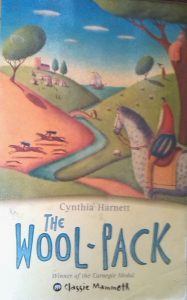
Cynthia is in my top ten children’s authors with her exquisitely illustrated and beautifully researched historical novels for children. So worth the read, and, nowadays, so hard to find (but worth the trouble). They are collectors’ items extraordinaire and I highly recommend them.
Did you ever read Eve Garnett’s The Family from One End Street? That book was the winner in 1937. It continues to please and surprise me that classic books like these are still good and worthy reads after so many years.
Authors like Walter De La Mare who won the Medal in 1947 for Collected Stories for Children and Elizabeth Goudge who won the Medal in 1946 for The Little White Horse; these authors will have been enjoyed by our parents and grandparents and are still a good read for our children.
I have a passion for good children’s literature so if you want to talk more or get recommendations of more fabulous books please check the booklists here and also, why not drop me a note? I love to chat about homeschooling, books and children.
